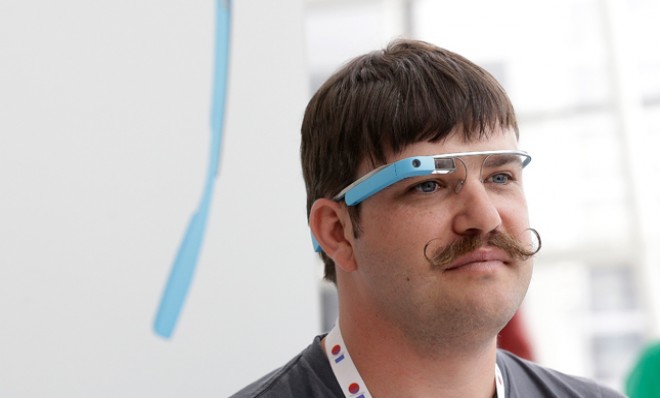Why Google Glass' privacy concerns are grossly overstated
"To record someone at a urinal, a voyeur wearing Google Glass would have to stand there and stare at that person," notes Popular Science's Dan Nosowitz

A free daily email with the biggest news stories of the day – and the best features from TheWeek.com
You are now subscribed
Your newsletter sign-up was successful
Google Glass, the not-really-made-of-glass monocle you have to yell at, already has more than a few problems on its plate. Fast Co. Design notes that Glass was suspiciously missing from every presenter's face during the I/O keynote, suggesting that it's still "a little weird" to don in public. And Wired's Marcus Wohlsen theorizes that the device is simply "too rational" to be a hit, and may be doomed to go the way of the Segway.
What shouldn't be a problem, argues Dan Nosowitz as Popular Science, is the headset's overstated surveillance concerns, which are exemplified in a "very serious" petition to the White House calling for a nationwide Glass ban. "The fear articulated in the petition is that a Glass-wearer will be able to record without a subject knowing, even in potentially sensitive places like public bathrooms," writes Nosowitz:
The problem with Google Glass as a potential privacy or security risk is much subtler and smaller than petitioners like this imagine. Google Glass records only what's in roughly the wearer's field of vision. That means that to record someone at a urinal, a voyeur wearing Google Glass would have to stand there and stare at that person, without moving, for the length of the video. Video quality, too, is not stellar; certainly not as good as video taken by your phone. And it's a giant, hugely noticeable pair of spaceman glasses.
That said, it's hard to get too angry at these folks for wanting to at least discuss the issue of surveillance. Google Glass is, I'd argue, a less efficient surveillance device than a smartphone, except for one thing: you don't have to extract it from a pocket or bag. And it is dangerous to take too strong of a position that Google Glass is an innocent device constructed of sci-fi dreams and good intentions; I don't think banning is really the right move, but it's certainly important to talk about.
Read the rest of the essay at Popular Science.
The Week
Escape your echo chamber. Get the facts behind the news, plus analysis from multiple perspectives.

Sign up for The Week's Free Newsletters
From our morning news briefing to a weekly Good News Newsletter, get the best of The Week delivered directly to your inbox.
From our morning news briefing to a weekly Good News Newsletter, get the best of The Week delivered directly to your inbox.
A free daily email with the biggest news stories of the day – and the best features from TheWeek.com
-
 Political cartoons for February 16
Political cartoons for February 16Cartoons Monday’s political cartoons include President's Day, a valentine from the Epstein files, and more
-
 Regent Hong Kong: a tranquil haven with a prime waterfront spot
Regent Hong Kong: a tranquil haven with a prime waterfront spotThe Week Recommends The trendy hotel recently underwent an extensive two-year revamp
-
 The problem with diagnosing profound autism
The problem with diagnosing profound autismThe Explainer Experts are reconsidering the idea of autism as a spectrum, which could impact diagnoses and policy making for the condition